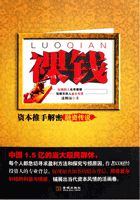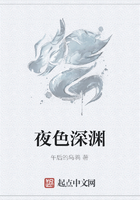Court within court, building after building, isolate the shrine itself from the profane familiarity of the passers-by. But though the material encasings vary in number and in exclusiveness, according to the temperament of the particular race concerned, the mental envelopes exist, and must exist, in both hemispheres alike, so long as society resembles the crust of the earth on which it dwells,--a crust composed of strata that grow denser as one descends. What is clear to those on top seems obscure to those below; what are weighty arguments to the second have no force at all upon the first. There must necessarily be grades of elevation in individual beliefs, suited to the needs and cravings of each individual soul. A creed that fills the shallow with satisfaction leaves but an aching void in the deep. It is not of the slightest consequence how the belief starts; differentiated it is bound to become. The higher minds alone can rest content with abstract imaginings; the lower must have concrete realities on which to pin their faith. With them, inevitably, ideals degenerate into idols.
In all religions this unavoidable debasement has taken place.
The Roman Catholic who prays to a wooden image of Christ is not one whit less idolatrous than the Buddhist who worships a bronze statue of Amida Butzu. All that the common people are capable of seeing is the soul-envelope, for the soul itself they are unable to appreciate. Spiritually they are undiscerning, because imaginatively they are blind.
Now the grosser soul-envelopes of the two great European and Asiatic faiths, though differing in detail, are in general parallel in structure. Each boasts its full complement of saints, whose congruent catalogues are equally wearisome in length. Each tells its circle of beads to help it keep count of similarly endless prayers. For in both, in the popular estimation, quantity is more effective to salvation than quality. In both the believer practically pictures his heaven for himself, while in each his hell, with a vividness that does like credit to its religious imagination, is painted for him by those of the cult who are themselves confident of escaping it. Into the lap of each mother church the pious believer drops his little votive offering with the same affectionate zeal, and in Asia, as in Europe, the mites of the many make the might of the mass.
But behind all this is the religion of the few,--of those to whom sensuous forms cannot suffice to represent super-sensuous cravings; whose god is something more than an anthropomorphic creation; to whom worship means not the cramping of the body, but the expansion of the soul.
The rays of the truth, like the rays of the sun, which universally seems to have been man's first adoration, have two properties equally inherent in their essence, warmth and light. And as for the life of all things on this globe both attributes of sunshine are necessary, so to the development of that something which constitutes the ego both qualities of the truth are vital. We sometimes speak of character as if it were a thing wholly apart from mind; but, in fact, the two things are so interwoven that to perceive the right course is the strongest possible of incentives to pursue it. In the end the two are one. Now, while clearness of head is all-important, kindness of heart is none the less so. The first, perhaps, is more needed in our communings with ourselves, the second in our commerce with others. For, dark and dense bodies that we are, we can radiate affection much more effectively than we can reflect views.
That Christianity is a religion of love needs no mention; that Buddhism is equally such is perhaps not so generally appreciated.
But just as the gospel of the disciple who loved and was loved the most begins its story by telling us of the Light that came into the world, so none the less surely could the Light of Asia but be also its warmth. Half of the teachings of Buddhism are spent in inculcating charity. Not only to men is man enjoined to show kindliness, but to all other animals as well. The people practise what their scriptures preach. The effect indirectly on the condition of the brutes is almost as marked as its more direct effect on the character of mankind. In heart, at least, Buddhism and Christianity are very close.
But here the two paths to a something beyond an earthly life diverge. Up to this point the two religions are alike, but from this point on they are so utterly unlike that the very similarity of all that went before only suffices to make of the second the weird, life-counterfeiting shadow of the first. As in a silhouette, externally the contours are all there, but within is one vast blank.
In relation to one's neighbor the two beliefs are kin, but as regards one's self, as far apart as the West is from the East.
For here, at this idea of self, we are suddenly aware of standing on the brink of a fathomless abyss, gazing giddily down into that great gulf which divides Buddhism from Christianity. We cannot see the bottom. It is a separation more profound than death; it seems to necessitate annihilation. To cross it we must bury in its depths all we know as ourselves.
Christianity is a personal religion; Buddhism, an impersonal one.
In this fundamental difference lies the world-wide opposition of the two beliefs. Christianity tells us to purify ourselves that we may enjoy countless aeons of that bettered self hereafter; Buddhism would have us purify ourselves that we may lose all sense of self for evermore.
For all that it preaches the essential vileness of the natural man, Christianity is a gospel of optimism. While it affirms that at present you are bad, it also affirms that this depravity is no intrinsic part of yourself. It unquestioningly asserts that it is something foreign to your true being. It even believes that in a more or less spiritual manner your very body will survive.















